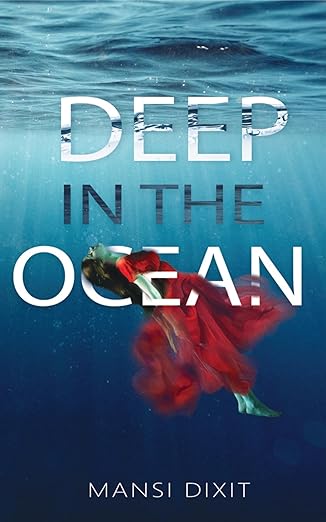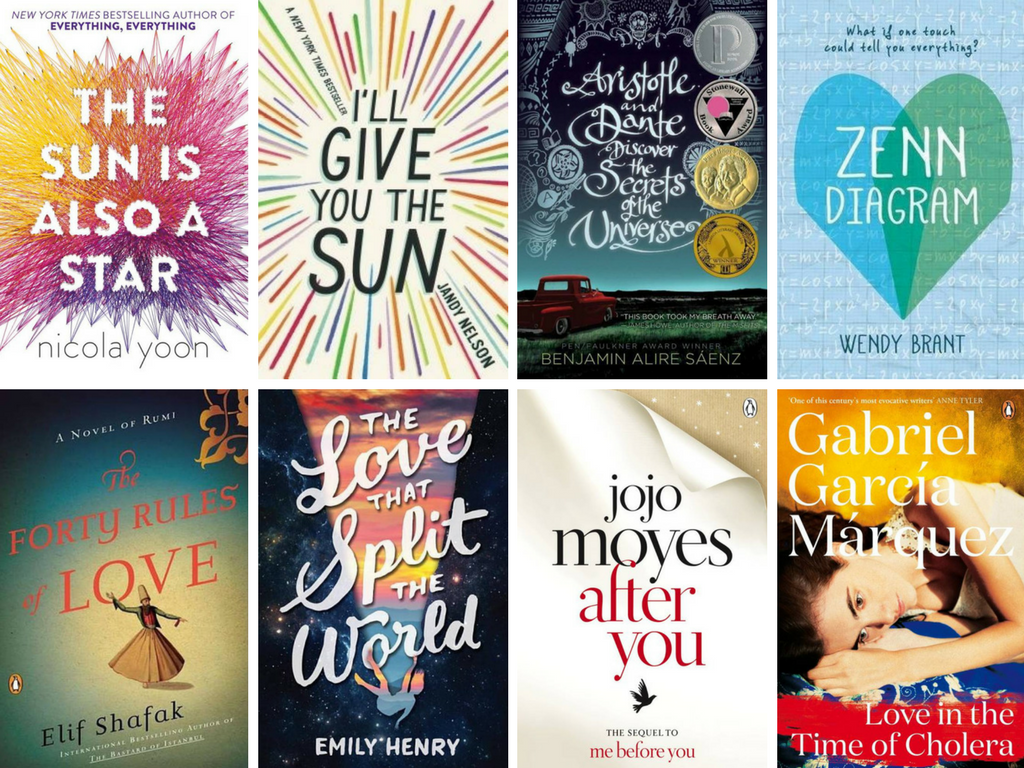Q.1 What inspired you to write Deep in the Ocean?
My journey as a writer began back in the 10th grade when I wrote my first poem. The idea of creating something of my own had always been at the back of my mind, and I found myself increasingly drawn to the world of storytelling. My late grandfather, who was a Hindi author, played a significant role in motivating me. His passion for writing left a deep impression on me, and I often felt a connection to him through the words I penned down. As a literature major, I immersed myself in books, which further fueled my desire to write something of my own.
One day, the idea for Deep in the Ocean just came to me. I shared it with a friend, casually mentioning that I had a story in mind and that I thought I could write it, but I wasn’t sure if I could actually do it. He encouraged me not to stop before even trying and to write for fun. Then I decided to give it a shot. I’m thankful that I gave it a thought and decided to write. From there, I conducted extensive research, created character sheets, and meticulously planned each scene. Finally, after much effort and dedication, my book came to life.
Q.2 Why did you choose to focus on themes like depression, academic pressure, and young love?
As a student, these themes resonated deeply with me. During my academic journey, we often had discussions and workshops centered around sensitive topics like mental health and academic pressure. Many of my friends and peers, including myself, experienced the overwhelming stress that comes with academic expectations. These conversations were frequent and intense, so when I began writing, I felt compelled to explore these issues from a student’s perspective. Young love, on the other hand, is a natural part of teenage life. It’s a time when we make mistakes, learn, and grow. As a romance reader, I wanted to weave these elements together to create a story that not only speaks about love but also addresses the realities of depression and academic pressure.
Q 3. Given the complex publishing process in India, what was your experience?
The publishing process in India is indeed challenging, especially for new authors. I completed the draft of my book by September 2022 and then began the daunting task of reaching out to publishers. The responses were mixed; some publishers responded while others didn’t. As a debut author, it was difficult to navigate this process. Many publishers had specific demands, such as having a large social media following or being an influencer, which they believed would guarantee book sales. One publisher showed interest in publishing my book traditionally, but they informed me of a long queue, suggesting I might have to wait 3-4 years. After not hearing back from them, I decided to take matters into my own hands. I researched self-publishing options and eventually came across Paper Towns, a publishing house that provided a smooth and supportive experience. The journey was challenging, but it taught me the importance of perseverance and believing in my work.
Q 4 What challenges did you face while writing about sensitive topics like mental health and how did you ensure an authentic portrayal?
Writing about sensitive topics like mental health requires a delicate and thoughtful approach. My goal was to ensure that the portrayal resonated with young readers and was rooted in authenticity. To achieve this, I conducted thorough research. My sister, who is pursuing a Master’s in Psychology, was instrumental in helping me develop the characters and their internal struggles. We spent hours discussing the nuances of mental health. Additionally, I turned to online platforms like Quora, Google, and Reddit, where students often share their experiences anonymously. These platforms provided invaluable insights into the competitive academic environment in India, where exams like JEE, NEET, UPSC, and others put immense pressure on students. I also had conversations with friends, focusing solely on anxiety, future prospects, and the challenges we faced. This extensive research allowed me to create a narrative that felt real and relatable.

Q. 5. Can you discuss any research or personal experiences that informed your writing on the topics of depression, academic pressure, and mental health?
My writing on these topics is deeply informed by personal experiences and observations. As friends, we often discussed mental health issues, particularly with our college psychology professor. These discussions made me realize that I wasn’t alone in feeling the pressure to excel and make a name for myself. In 10th grade, I was part of a group of 15 friends who studied together for our board exams. Despite being close, we rarely shared the truth about how much we were studying. It was a competitive environment where everyone was striving for the highest marks, we used to fight and compete even for half marks. This pressure continued into 12th grade as I prepared for entrance exams for design colleges. The competition was intense, and when I didn’t get into the one college I really wanted, it was a significant blow. I stopped designing and drawing for six months, overwhelmed by a sense of failure. However, I eventually found my way back, thanks to the support of those around me. I decided to let go of things beyond my control and focus on finding solutions rather than overthinking. This personal journey deeply influenced my portrayal of these issues in Deep in the Ocean.
Q 6 What do you hope readers will take away from Deep in the Ocean?
I hope that readers, especially teenagers, will see Deep in the Ocean as a guide to navigating the complexities of growing up. The teenage years are a time for exploration, making mistakes, and learning from them. It’s about doing what you love, even if it doesn’t align with others’ expectations. Through the main character’s journey, I want readers to learn from her mistakes and understand the importance of seeking help when needed. Life is short, and we have so much to accomplish. It’s important to pause, breathe, and do what calms us down when things become overwhelming. The challenges we face shape us and help us create new chapters in our lives. I hope my readers find comfort in knowing that they are not alone and that it’s okay to struggle and ask for help.
Q 7 Describe a lesser-known aspect of Mansi.
I might appear nerdy and shy at first, but those who know me well know that I’m far from it. I was a mischievous child—once, I almost set my neighbor’s house on fire, though they still love me! I love making people laugh and enjoy the little things in life. However, I’m also an introvert who can spend days at home, lost in books. Socializing isn’t my forte, but when I’m with my close friends, I can talk for hours. I’m a mix of contradictions—quiet and introspective, yet full of energy and enthusiasm around the right people.
Q 8 What’s next for you as an author? Are you working on any new projects that you can share with us?
I’m not entirely sure what the future holds for me as an author, but I have a few ideas brewing. I’ve written some short stories that I hope to animate someday. The world of animation fascinates me, and I want to bring my stories to life through this medium. I’m also considering writing another book, but it’s still under consideration. For now, I’m exploring different creative avenues and seeing where they take me.
Buy the book : https://www.amazon.in/dp/9361858580
Connect with the author : Instagram id : https://www.instagram.com/mansi_dixit_10/
























